🎒 The Rough Guide to becoming a Globetrotting Footballer 🌍
Keep the Ultras on side. Just say no to the electronic tag. And don’t worry, you’ll get paid eventually...
Cillian Sheridan is the Bill Bryson of professional football. His career has taken him from his native Ireland to eight different countries: Scotland, England, Poland, Israel, Bulgaria, Cyprus, New Zealand and the United States. The 35-year-old’s latest stop on his nomadic adventures is at Highland League club Brechin City.
With the January transfer window about to close, Sheridan believes more UK-based players should take a chance on a life beyond these shores.
This is his eight-point survival guide to playing abroad.
By Cillian Sheridan
#1 GET A GOOD AGENT
My agent, John Inglis [the former St Johnstone and Aberdeen player], was based in Bulgaria. John was approached by CSKA Sofia who were looking for a striker and I fitted the profile. I made my Republic of Ireland debut at the start of that summer [May 2010], so I went over there as an international, which helped me profile-wise. It started well, but towards the end of the first season, I was counting down the days till summer. I knew they wanted rid of me, and I wasn’t really playing, so both parties were happy that I left… except I was on a good contract. That’s when I learned the importance of having a good agent in your corner. They agreed that I could go on loan back to Scotland, but said I’d have to slash my wages by 50 per cent if I didn’t play more than 75 per cent of the games. My agent said: “That’s not happening. Forget it.” They kept pushing, but John said: “He’ll just stay here. He doesn’t mind.” Now, I have to admit, I was panicking a bit! But John continued to call their bluff. At one stage, the president said that if I stayed, I’d have to wear an electronic tag on my foot (I’d been caught out late a few times). John said: “I’m going to pretend you never said that.” Then, eventually, we came to an agreement that they would let me go back on loan to St Johnstone but pay a portion of my salary back to Sofia. Had I been on my own, I would have been pressured into doing whatever the club wanted.
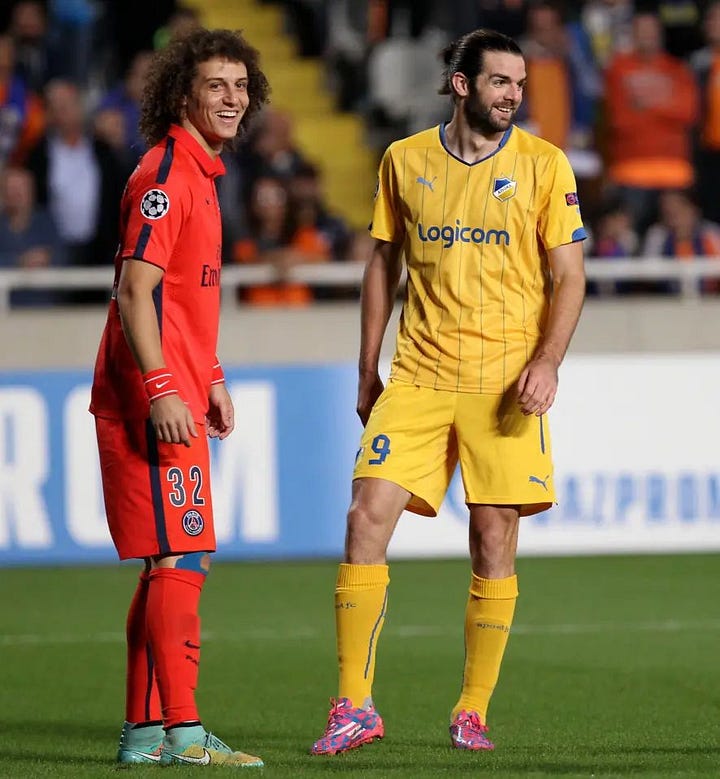

#2 NO WAGES? DON’T PANIC
If you go abroad and you’re really set in your ways, then you won’t survive long. If it’s the 28th of the month and you haven’t been paid your wages, don’t panic. My experience of playing abroad is that wages won’t always be paid at the same time, or all at once. You need to be patient and laid-back about the ways certain things are done. You might train in the morning one day and then in the evening the next day. You may not have many days off. During my first time in Bulgaria, I just didn’t adapt at all. I thought, ‘No, that’s all wrong. It should be 10am training every day. Why don’t I have Wednesdays off?’ You need an open mind.
#3 SET YOUR OWN STANDARDS
When I first moved to CSKA Sofia, it went well. We were playing in the Europa League, I was scoring… then and it all changed. Managers changed. And I was not doing any of the right things. At Celtic, I was never a big player so if I went out and had a good night, I wouldn’t be recognised. Whereas over there – because I was their big signing that summer – I was recognised a lot more. I carried on as if I was still a Celtic reserve player, just enjoying my life. One day the manager had a meeting to talk about certain players who had been out socialising. Security had told the manager that these players had come in at 5am. I thought nothing of it. It wasn’t until a month or two later that the Italians on the team told me: ‘That meeting was about you!’
When I moved back to St Johnstone on loan, Jody Morris was captain, and I became good friends with him. He’d make comments about guys who weren’t training properly and then it hit me: ‘That was probably me last year [at Sofia].’ I realised that I wouldn’t want teammates to think that way about me – and that changed my attitude towards Bulgaria. So, when I went back for my third season, I wanted to right my wrongs of the first season – show that I was a better player and a better professional.
There was also a period in Cyprus when I found myself hating training. It was easy to get dragged down by teammates who said the training was slow and boring. Then, one day, I changed how I thought about it. I began to set my own standards – and it made a complete difference. I would come out of training and think, ‘Okay, I felt good about that.’
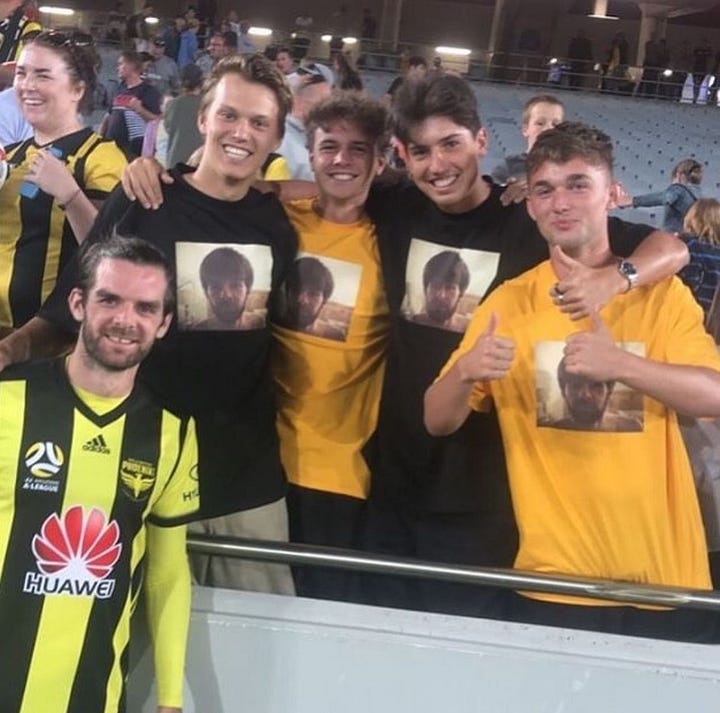

#4 CRACK THE EUROPEAN MARKET
After a while, I found that I was plugged into this Central European marketplace. Once you’re in that belt of Central and Eastern Europe, you’re not seen as a British or Irish player. You’re just a player… and if you do well, suddenly, your name is out there. I built a good reputation in Cyprus with APOEL and, when I became a free agent, I knew I’d have offers. Then, when I signed for Omonia, I started getting even more interest from abroad. Foreign agents would get my number through another player, or through Instagram or Facebook. You would know straight away which ones were serious or not. I would put them in touch with my agent, and he was quite relaxed about working alongside someone else to get a deal done for me. I was close to going to FC Sheriff Tiraspol in Moldova, who were in the Champions League. Then, I was close to going to Russia.
#5 RESPECT THE ULTRAS
During my time in Cyprus with APOEL and Omonia, there were around five occasions when training was cancelled because the Ultras would come in and say, ‘You’re not training today. You don’t need to train to beat this team’. Or we might have a meeting, and the Ultras would just come in and stop it – and there was nothing the manager could do. Sometimes you didn’t know if the club – whether that’s the president or owner – might have actually agreed to it because it keeps them in with the fans. On a night out, fans could come up to you, singing and dancing with you, buying you drinks; but if you weren’t doing well for the team, they could tell you to go home! At the start of my time in Cyprus, I was the ‘tourist player’. When I started to do well, I felt I had earned the right to go out and enjoy the island. I had a ‘pass’ to do what I wanted.
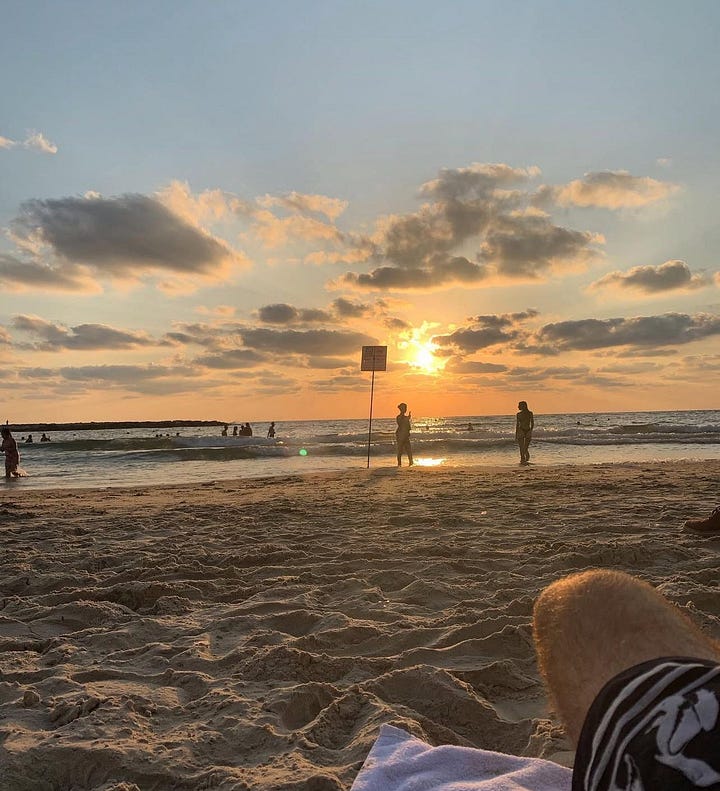
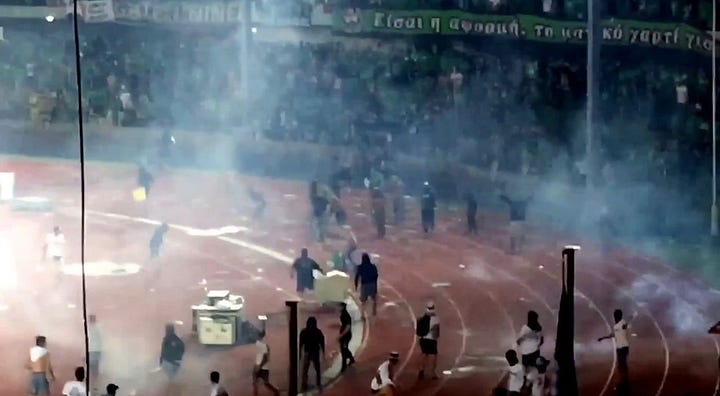
#6 CHRISTMAS DINNER IS BACK ON THE MENU
In most places in Central and Eastern Europe, you get winter breaks – two or three weeks off over Christmas and New Year. It’s brilliant. Then you go back in January and do a mini pre-season – normally you go to Turkey, to Antalya or Belek. There would be a host of teams there – Polish teams, Russian teams – so you’d play friendlies against each other. I remember playing against Gheorghe Hagi’s Romanian team. His son, Ianis, who now plays for Rangers, was playing and I remember thinking, ‘Who’s this guy who’s taking a corner with his right foot and then hitting a free-kick with his left?’
#7 CHECK YOUR INSTAGRAM MESSAGES
I was in the last six months of my contract with Jagiellonia Bialystok in Poland and had been told that I wouldn’t be going on the pre-season camp in January. So, I had a decision to make. I could stay in Poland and possibly not play for six months or try to find a new club. Then I got an Instagram message from former Newcastle defender Steven Taylor, who asked me about coming to play for Wellington Phoenix. At first glance, I thought it was Phoenix, Arizona, rather than Wellington, New Zealand! I moved there with the intention of impressing and getting into the Asian market. Places like China, Japan and India deal a lot in Australia and New Zealand, so I wanted to be in that region to see if I could get another move. The one place I’ve always been desperate to go to is Japan. If I could pick anywhere to sign a five-year contract without knowing the club, it would be Japan. I’ve never heard a player talk negatively about their experiences there. My one regret is that I never got to play there.
#8 NO RESPONSIBILITIES, NO BORDERS
My partner Jodie and I didn’t have kids, so we had the luxury of being able to pick up and go wherever we want. We didn’t need to think of schools or anything else. Having said that, I’ve played with plenty of guys who did have kids and families and could still play in many different countries, so it can be done. Jodie was with me for most of my travels up until the Covid years. After that, I ended up going on my own, because the moves were more short term, so it wasn’t really suitable for her to come over. But until then, in Cyprus, Bulgaria, and my first spell in Poland, Jodie was pretty much with me all the time. So, not having the responsibility of kids was a big part of enabling me to play abroad.


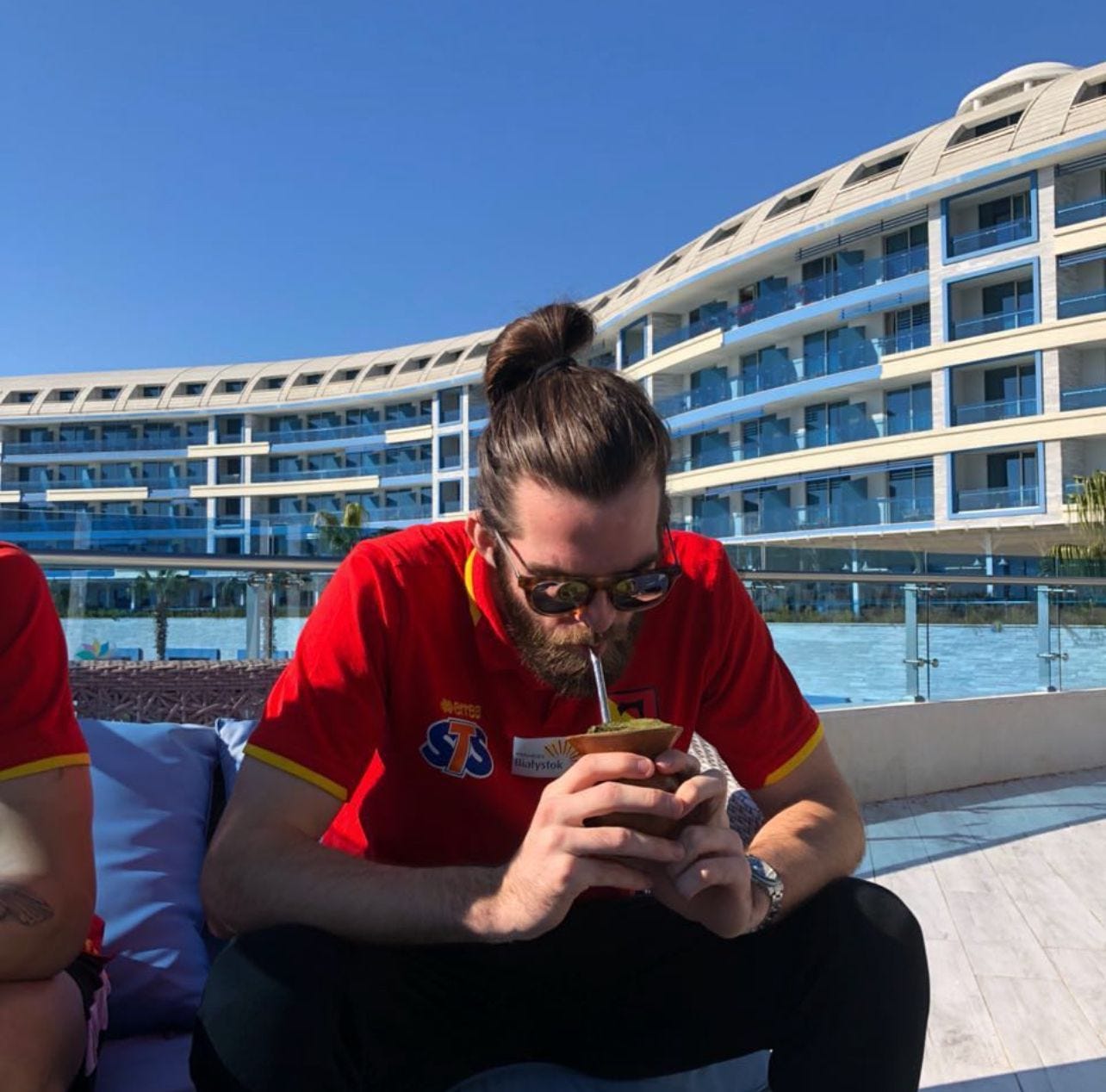

Really interesting piece, having had something of a globetrotting career myself only as a teacher there's great general advice there too.
Really insightful piece that. Whilst I know 'drinking culture' has changed even in the UK these days, would be intrigued to know the difference across the various places in Europe?